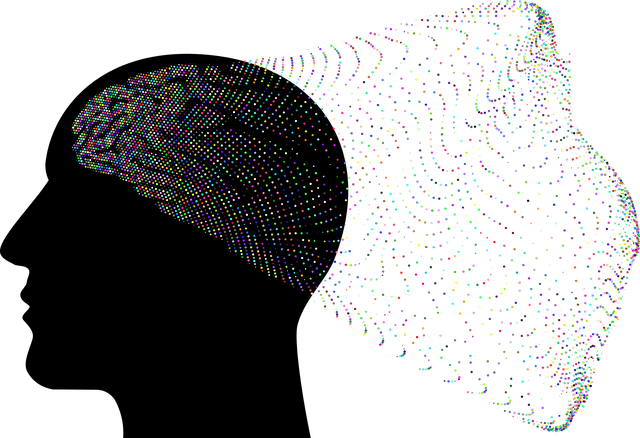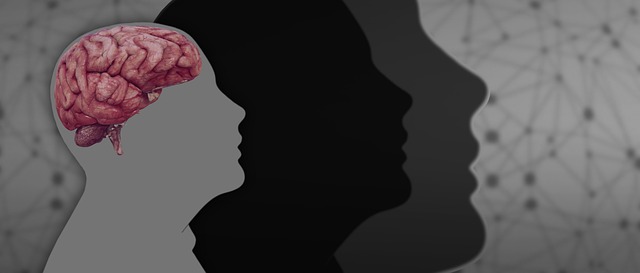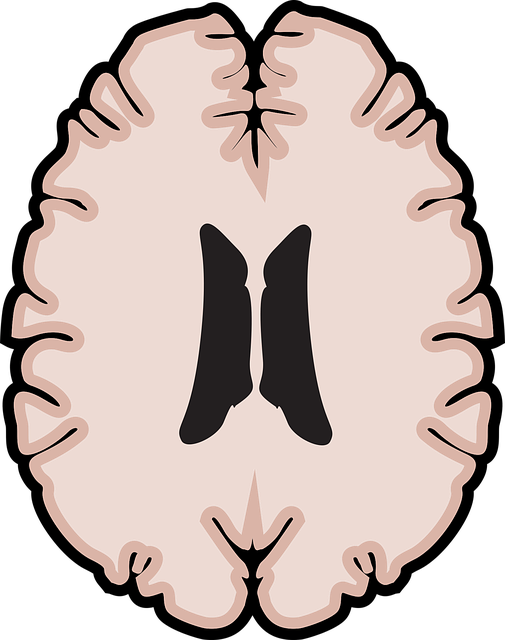Mental wellness coaching offers a modern, holistic approach to supporting individuals in achieving optimal mental health. Unlike traditional therapy models focusing on specific disorders, coaches empower clients to manage stress, improve self-care, and cultivate resilience using evidence-based techniques and personalized goals. Centennial Neuro Disorders Therapy (CNDT), integrating cognitive-behavioral therapy, mindfulness practices, and neuroplasticity, is a rising approach within coaching programs, helping clients understand thought patterns and build resilience. Inclusive curricula, incorporating strategies like confidence boosting and empathy building, are crucial for diverse participants, with customized modules targeting specific mental health challenges. Implementing evidence-based practices enhances emotional well-being, empowering individuals with tools to navigate life's complexities and improve mental wellness. Measuring success through measurable outcomes ensures program effectiveness and encourages sustainable positive outcomes in managing mental illness using Mind Over Matter principles.
Mental wellness coaching programs are gaining traction as a modern approach to supporting individuals’ holistic well-being. This article explores the development of such programs, focusing on the integration of Centennial Neuro Disorders Therapy (CNDT) and evidence-based strategies. We delve into key components like understanding mental wellness coaching, designing curricula for diverse needs, implementing effective techniques, and measuring success. By combining CNDT with best practices, these programs offer sustainable solutions to enhance mental health and resilience.
- Understanding Mental Wellness Coaching: A Modern Approach
- The Role of Centennial Neuro Disorders Therapy in Coaching Programs
- Designing Effective Coaching Curricula for Diverse Needs
- Implementing Evidence-Based Strategies in Mental Health Coaching
- Measuring Success and Promoting Sustainability in Coaching Initiatives
Understanding Mental Wellness Coaching: A Modern Approach

Mental wellness coaching is a modern approach to supporting individuals in achieving optimal mental health and well-being. Unlike traditional therapy models that often focus on treating specific disorders, wellness coaching takes a holistic perspective, encouraging clients to develop strategies for managing stress, improving self-care practices, and cultivating resilience. This proactive method empowers individuals to take ownership of their mental health journey.
By integrating evidence-based techniques with personalized goals, mental wellness coaches help clients navigate challenges and enhance their overall quality of life. The role of the coach is to provide guidance, accountability, and support while fostering self-discovery and empowerment. This approach is particularly relevant in addressing various neurodisorders, as it promotes early intervention and long-term management through tailored communication strategies and cultural sensitivity in mental healthcare practice. Moreover, it complements existing mental health policy initiatives by encouraging preventive measures and empowering individuals to advocate for their own care.
The Role of Centennial Neuro Disorders Therapy in Coaching Programs

In today’s fast-paced world, mental wellness coaching programs play a pivotal role in supporting individuals to navigate and overcome challenges related to their psychological well-being. One therapeutic approach gaining significant traction is Centennial Neuro Disorders Therapy (CNDT). This innovative method integrates techniques from cognitive-behavioral therapy, mindfulness practices, and neuroplasticity principles to foster resilience building among clients. CNDT coaches help participants understand their thought patterns, emotions, and behaviors, empowering them to manage stress and adversity more effectively.
By incorporating CNDT into coaching programs, professionals can enhance their ability to support individuals in developing robust self-care practices and risk management planning for mental health. The therapy’s emphasis on neuroplasticity encourages clients to view their brains as adaptable and malleable, fostering a sense of empowerment to take control of their mental wellness. This approach not only equips coaching participants with valuable tools for managing short-term stressors but also promotes long-term resilience, enabling them to thrive in diverse life situations while prioritizing their psychological health.
Designing Effective Coaching Curricula for Diverse Needs

In designing effective coaching curricula for diverse needs, mental wellness programs must account for the varied backgrounds and experiences of their participants. A holistic approach that incorporates strategies like confidence boosting and empathy building is essential to cater to individuals with different challenges, including those seeking Centennial Neuro Disorders Therapy. Customized modules can focus on specific areas such as improving communication skills, fostering self-care habits, and teaching effective coping mechanisms tailored to personal struggles.
The curriculum should also integrate evidence-based practices like mindfulness meditation to enhance emotional regulation and overall well-being. By incorporating diverse techniques, these programs can ensure inclusivity, providing life-changing support for all participants, regardless of their unique mental health journeys or therapy needs.
Implementing Evidence-Based Strategies in Mental Health Coaching

Implementing evidence-based strategies is paramount in the development of effective mental wellness coaching programs. Techniques such as Cognitive Behavioral Therapy (CBT), Dialectical Behavior Therapy (DBT), and Mindfulness-Based Stress Reduction (MBSR) have been proven to significantly enhance emotional well-being promotion techniques. By integrating these strategies, coaches can facilitate clients’ understanding of their thoughts, feelings, and behaviors, thereby fostering resilience building and self-care practices.
Centennial neuro disorders therapy plays a pivotal role in this context, as it tailors interventions to address specific mental health challenges prevalent among different age groups. Through the integration of evidence-based strategies, coaches can develop personalized plans that not only alleviate symptoms but also empower individuals to maintain long-term mental wellness. This holistic approach ensures that clients gain practical tools and insights to navigate life’s complexities, fostering a sense of agency and improved overall emotional resilience.
Measuring Success and Promoting Sustainability in Coaching Initiatives

Measuring success and promoting sustainability are vital components in the development of mental wellness coaching programs. To ensure longevity, initiatives should incorporate measurable outcomes aligned with established goals. Using evidence-based metrics such as client satisfaction ratings, improvements in symptomatology (e.g., reduced anxiety or depression scores), and increased coping mechanisms can demonstrate program effectiveness. These data provide a clear picture of progress and inform adjustments to coaching strategies.
Centennial Neuro Disorders Therapy, for instance, can benefit from tracking these indicators over time. By fostering Mind Over Matter Principles, coaches can empower individuals to manage mental illness effectively. Moreover, regular evaluations allow for the identification of areas needing improvement and ensure that Depression Prevention and Mental Illness Stigma Reduction Efforts remain focal points in coaching practices, ultimately contributing to sustained positive outcomes.
Mental wellness coaching programs, enriched by evidence-based practices like Centennial Neuro Disorders Therapy, hold immense potential for addressing diverse mental health needs. By designing curricula that cater to various populations and implementing sustainable strategies, we can ensure these programs are effective and accessible. Measuring success through thoughtful metrics allows us to continuously improve, fostering a future where mental wellness coaching is an integral part of holistic well-being.








